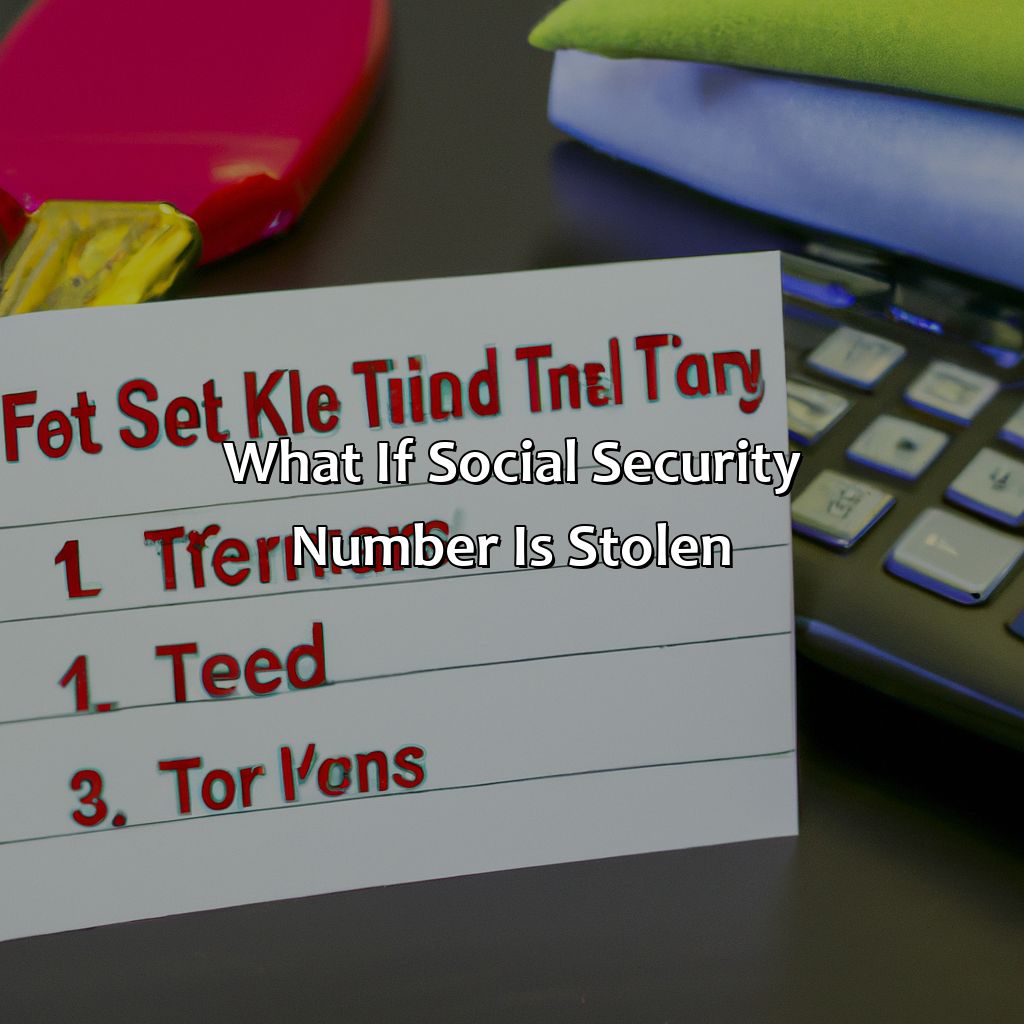What If Social Security Number Is Stolen?
Key Takeaways:
- Identifying suspicious activities on financial documents, receiving IRS notifications indicating duplicate tax returns, or getting a notification from the Social Security Administration or financial institutions are signs that your Social Security Number (SSN) may have been stolen.
- If your SSN is stolen, report to the Social Security Administration (SSA) immediately, contact financial institutions, and freeze credit reports to prevent further damage.
- To prevent SSN theft, secure personal information, limit sharing of SSN, and enroll in identity theft protection services.
Do you worry about the safety of your Social Security number? Are you wondering what to do if it gets stolen? Read on to find out how to protect yourself and how to handle a stolen Social Security number. You can keep your information secure by taking the necessary steps to protect your identity.
Understanding Social Security Numbers (SSN)
Social Security Numbers (SSN) are unique nine-digit identification numbers assigned to US citizens, permanent residents, and temporary residents. They are essential for various government services, including filing taxes and receiving Social Security benefits.
SSNs are critical identifiers that should be guarded against theft, as unauthorized access to them can lead to identity theft, credit fraud, and serious financial loss. One should always keep their SSN private and secure, avoiding sharing it with anyone unless it is essential, such as for employment or obtaining credit.
In recent years, the US government has taken various measures to help prevent SSN theft, such as limiting their use as personal identifiers and increasing fraud detection programs’ effectiveness. However, despite these efforts, SSN theft remains a significant concern for individuals and companies that maintain sensitive personal data.
In 2017, Equifax, one of the largest credit reporting agencies in the US, suffered a massive data breach, exposing the personal data of millions of Americans, including their SSNs. The incident led to widespread public outcry and renewed calls for stronger data privacy and breach notification laws. It highlights the need for individuals and companies to take the necessary precautions to protect their sensitive data, including their SSNs.
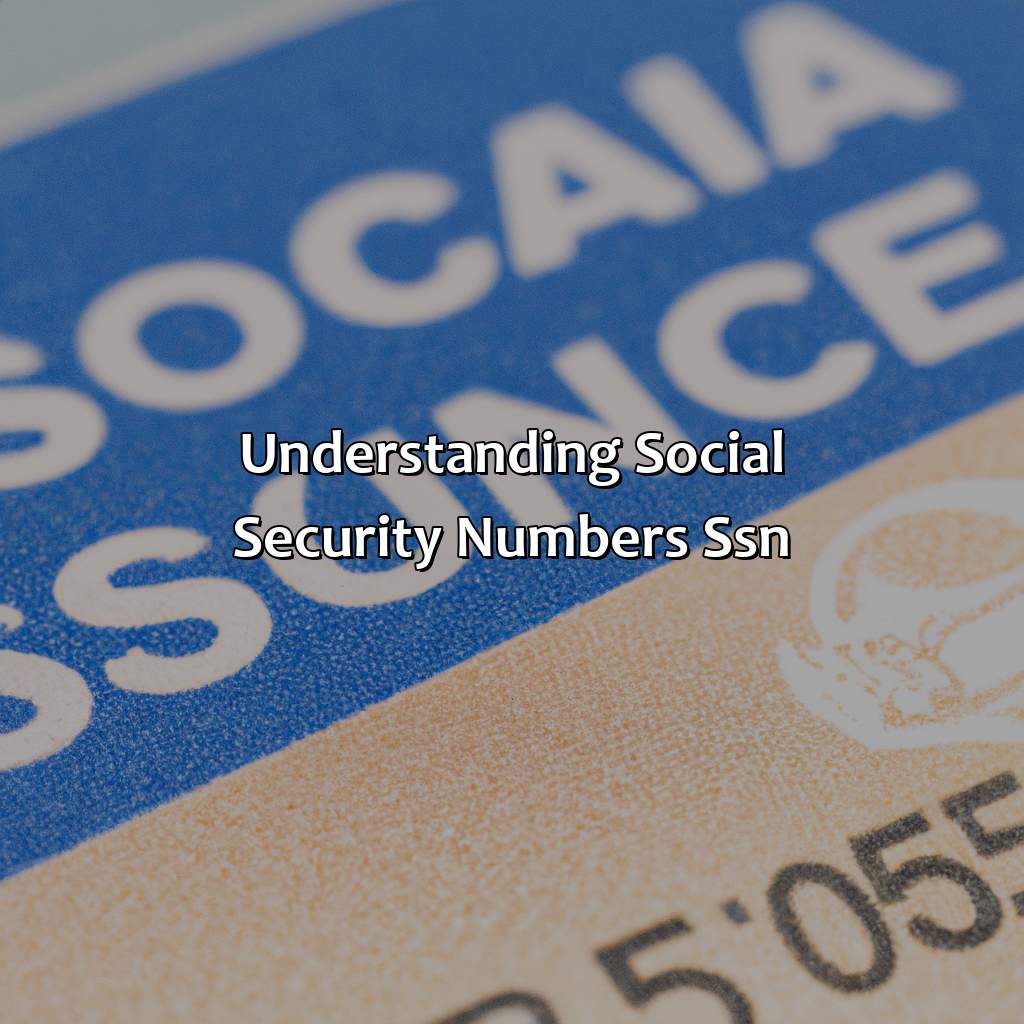
Image credits: retiregenz.com by Yuval Duncun
Identifying if your SSN has been stolen
Are your SSN details safe? Check out this section to find out! It includes:
- Suspicious activities on financial documents
- IRS notifications for duplicate tax returns
- Notification from Social Security Administration or financial institutions
Stay alert and aware of any potential threats to your identity and finances.
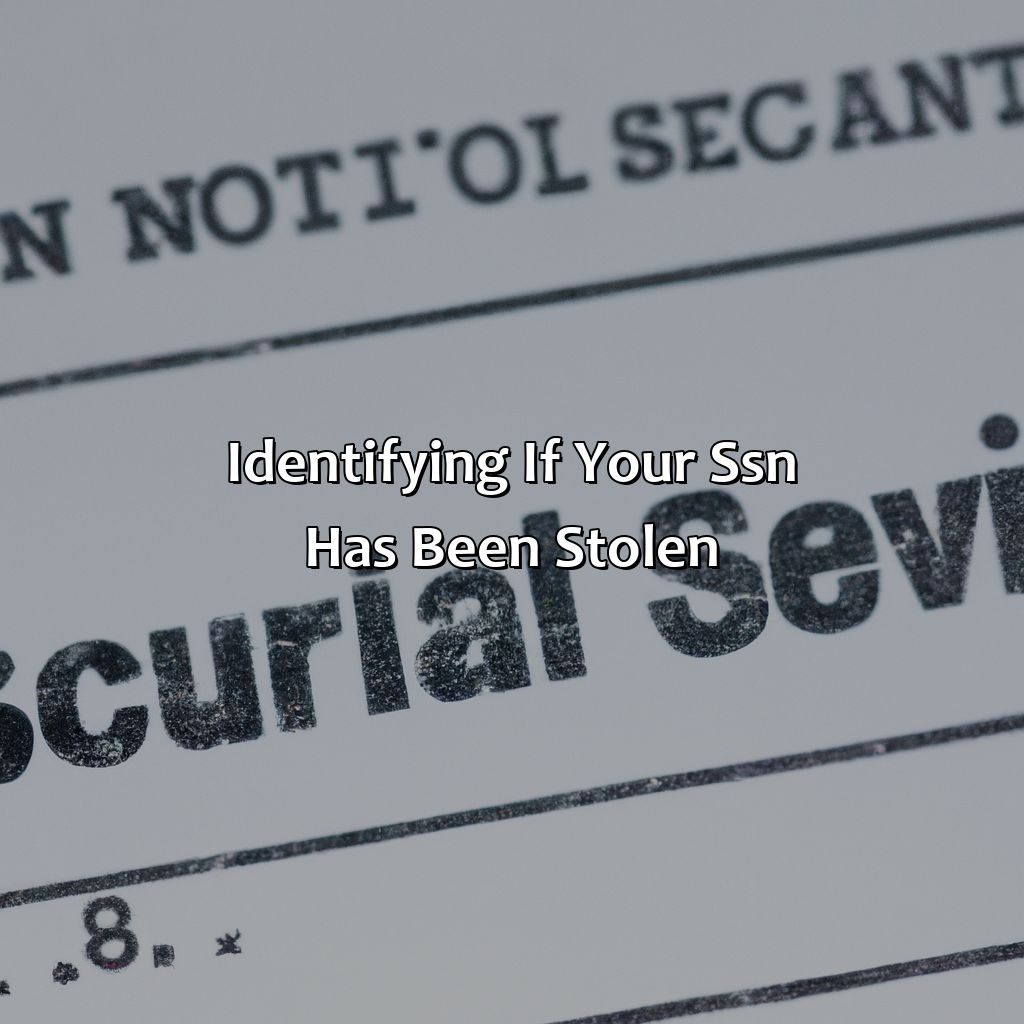
Image credits: retiregenz.com by Joel Duncun
Suspicious activities on financial documents
Unusual activities on financial documentation can alert one to the potential theft of their personal information. Unexpected charges, unapproved account openings, and strange withdrawals can be suspicious activities indicative of identity theft. If any of these actions appear on your financial documents, it is crucial to investigate the situation immediately.
Other signs of theft may include unfamiliar accounts on credit reports or unauthorized inquiries from unknown sources. It is vital to monitor your finances consistently to detect possible fraud and theft quickly.
It is estimated that over 36 million Americans experienced identity theft in 2020 (Source: Statista). In light of this incident, it has become increasingly important to remain vigilant. Take necessary measures such as reporting the theft, freezing affected accounts, and monitoring credit reports regularly.
Looks like the IRS is trying to be more productive than all the procrastinators out there with their notifications of duplicate tax returns.
IRS notifications indicating duplicate tax returns
Notifications from the Internal Revenue Service (IRS) that indicate duplicated tax returns are a clear warning of theft or fraud involving your Social Security Number. It is crucial to promptly investigate and validate your return with the IRS if you receive such a notification.
Simple errors like misspelling your name could also trigger a duplicate return alert, but usually, it’s a sign that someone used your SSN to file false returns and claim refunds fraudulently. Fraudulent activities like these can damage your credit score and lead to financial troubles.
In case of theft or fraud, you should contact the IRS immediately for assistance in correcting any inaccuracies in your files and resolving any fraudulent issues. Acting fast can help prevent any further damage, such as unauthorized credit inquiries or new account openings.
The Federal Trade Commission reported recently that ID theft reports reached record highs last year, underscoring how important it is to protect yourself from identity fraud by regularly checking and verifying all notifications received from various government agencies. (Source: FTC Report)
If you’re getting a notification from the Social Security Administration or your financial institution, it’s either good news or your SSN has gone on vacation without your permission.
Notification from Social Security Administration or financial institutions
The Social Security Administration or financial institutions may notify you if they suspect that your SSN has been stolen. They may also provide you with instructions on how to protect your identity and prevent fraud. If you receive such a notification, it is important to follow the steps provided to safeguard your personal information and contact law enforcement if necessary.
In addition to being notified by authorities, you can also take proactive steps to monitor your credit report and regularly check for any suspicious activity. This can help you catch potential identity theft early on and minimize the damage.
It’s important to note that even if you haven’t received a notification, your SSN could still be at risk of theft. It is best practice to take precautions and monitor your accounts regularly regardless.
A recent study by Javelin Strategy & Research found that in 2020, there were over 10 million reported cases of identity theft in the United States alone.
Getting your SSN stolen is like losing a limb, but don’t worry, there are still plenty of actions you can take to prevent further damage.
Actions to take when SSN is stolen
When your SSN is stolen, take action! Report to the SSA. Contact financial institutions. Freeze credit reports. These steps are crucial for protecting from identity theft.
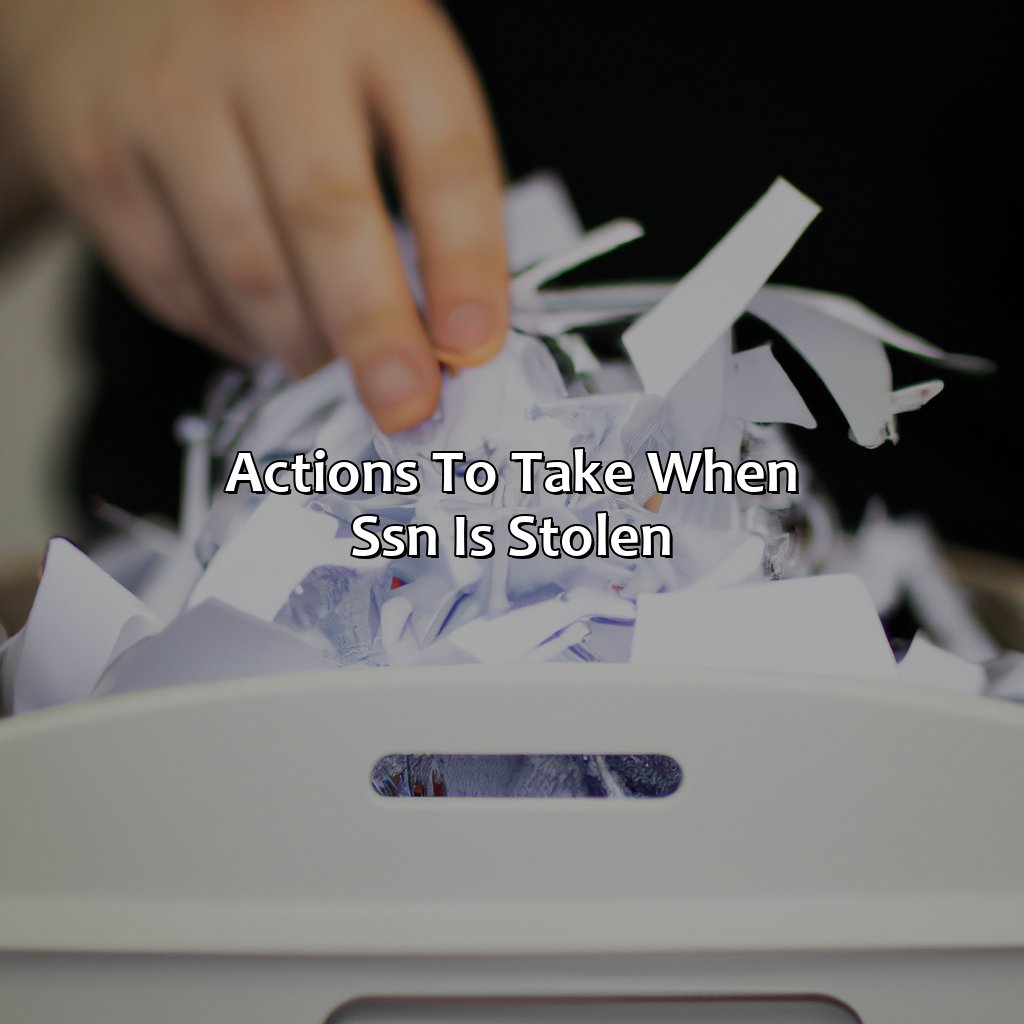
Image credits: retiregenz.com by Yuval Woodhock
Reporting to the Social Security Administration (SSA)
When your Social Security number has been stolen, you ought to report the theft to the appropriate regulatory agencies immediately. The investigative bodies will work swiftly to track down and prevent any further fraudulent uses of your SSN. Contacting the Social Security Administration (SSA) is a crucial step in this process. This agency will update your employment records accordingly and provide you with a new SSN if necessary.
By communicating with the SSA, it also helps maintain your future social security benefits. Your employer reports earnings directly to the SSA using your SSN, so it is essential for them to keep accurate records of all taxable wages earned under your name and number. Continuing normal employment could be problematic if another person or group continues to use your identity.
Do not forget: “Skipping a reporting measure can have devastating consequences.” Chris LaRocco was a victim of identity fraud when he graduated from law school in 2000. The thieves impersonated LaRocco’s passport, driving licence, medical insurance information, bank accounts, credit cards, and other documents – including his Temporary Resident Alien card – that he used at Anderson Kill & Olick P.C., where he worked as an attorney during his four years at law school.
Chris eventually discovered that someone had opened multiple credit accounts in his name and racked up more than $80k in combined debt over several years. Unfortunately, that meant involving credit agencies, banks, doctors’ offices, police departments, and government agencies throughout California. His case appears courtesy of Experian’s Fraud Victim Assistance Department as a true story example on their site as January 2022 piece advocating for victims of identity theft.
Better start practicing your ‘hold’ music skills, because you’re going to be on the phone with your financial institutions for a while.
Contacting financial institutions
When your social security number is stolen, contacting financial institutions is imperative. Report the theft or suspicion of such to relevant parties like banks, credit card issuers and loan offices where you have an account or have taken out a loan. Advise them to freeze these accounts until further notice.
They may also provide assistance in monitoring unauthorized activity such as credit checks and account movements on stolen information. Do not leave anything to chance, as detecting fraud early enough can avoid more significant losses down the line.
Remember to keep all records of any follow-up communications with them, including emails, written correspondence or phone conversations. This essential data will come in handy if there is a need for evidence in future proceedings.
Pro Tip: Alerting relevant financial institutions immediately after SSN theft can limit your exposure to harm and reduce damage done by potential thieves. Locking down your credit report is like putting your credit score on ice – it may be cold, but it’s the coolest move you can make to protect yourself from identity theft.
Freezing credit reports
When trying to safeguard oneself from identity theft, it is essential to consider restraints in activating credit accounts. This action is commonly known as putting a hold on credit records and is more formal as Credit Report Freezing.
- Freezing safeguards account holder’s credit reports from being accessed by anyone who tries to open an account using their details without their permission.
- Credit reports become inaccessible immediately and cannot be viewed for loan approvals.
- The law requires companies to confront its validity within five business days if there’s any application for verification or approval of the account holder’s identity.
- If the owner deems fit, they can utilise a one-time personal identification number (PIN) to temporarily lift the freeze from the credit report.
- Moreover, not only does this provide a sense of increased security amid identity thefts but also reduces financial fraud risks.
It’s also important to have a tracking mechanism active on your credit history by looking at annual statement charges and notifying potential discrepancies immediately.
It is always better to be safe than sorry when personal details are at stake. Fear of missing out on securing information should encourage owners to take these proactive measures towards securing their sensitive information and preventing identity theft.
Protect your SSN like you protect your crush’s Instagram account – with a strong password and never sharing it with anyone.
Preventing SSN theft
Protecting your social security number (SSN) from thieves is serious business. To ensure this, there are several things you can do. Secure your personal details, restrict who you share your SSN with, and sign up for identity theft protection services. We’ll look into each of these steps in the “Preventing SSN theft” section. It has sub-sections such as:
- Securing personal information
- Limiting sharing of SSN
- Enrolling in identity theft protection services
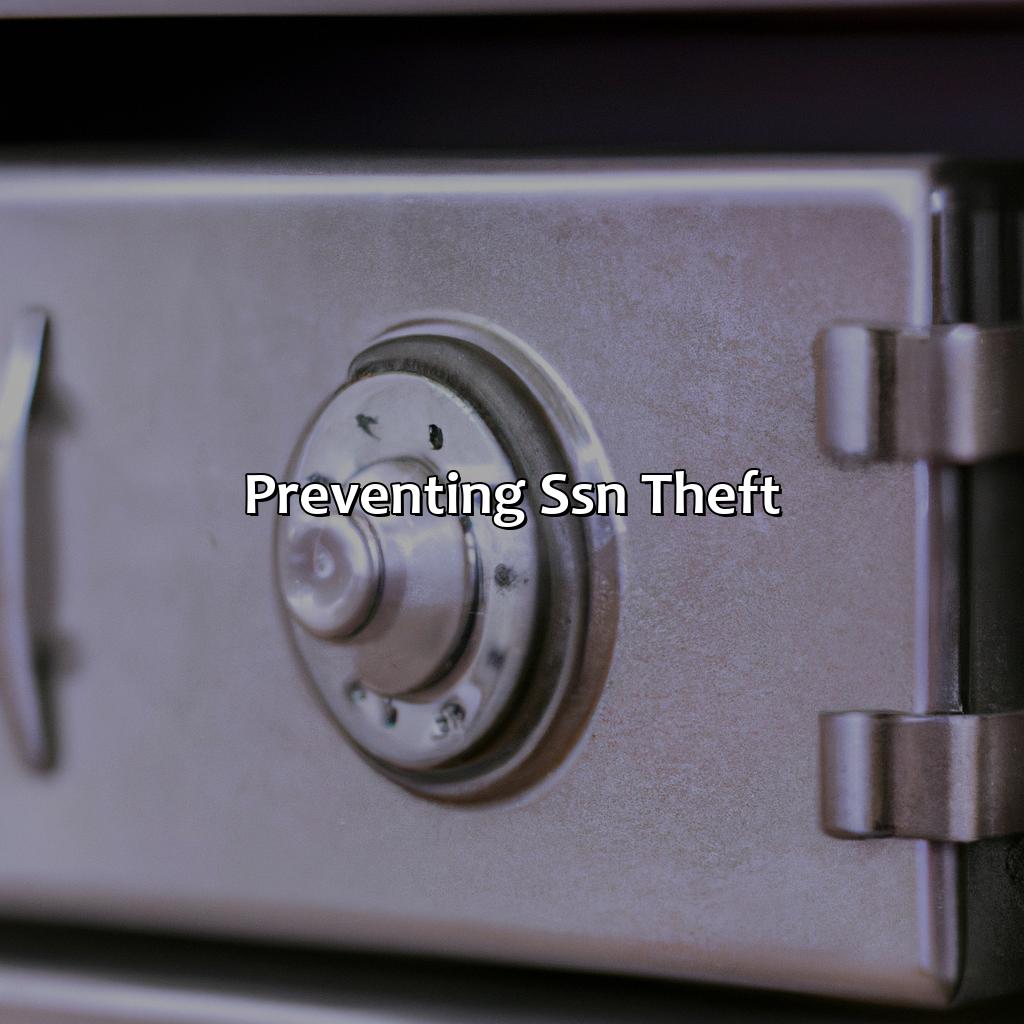
Image credits: retiregenz.com by David Washington
Securing personal information
Protecting confidential credentials is critical in today’s digital world. One must take necessary measures to safeguard their personal data, including financial information. Implementing a multilayer protection strategy can curb and deter fraudsters from stealing sensitive details.
Secure your personal information by constantly updating all software programs on your devices, such as computers and smartphones, with the latest security patches and system upgrades. It would be also best if you avoided clicking on email links or downloading attachments from unknown sources. Set up two-factor authentication (2FA) on every account that offers it, and use strong passwords.
Another essential step is to frequently monitor your accounts for any suspicious activities. Regularly check credit reports to spot fraudulent activities or unusual charges that may indicate identity theft.
Did you know that credit bureaus are required by law to provide free annual credit reports? Check your bank statements regularly, and review other financial documents carefully. Remember, cyber hygiene places an ultimate role in safeguarding an individual’s privacy online.
According to statistics released in 2019 by Cybercrime Magazine, cyber-attacks will cost companies around the world $11.5 million every minute this year alone!
They say sharing is caring, but not when it comes to your SSN – keep it as exclusive as a VIP club membership.
Limiting sharing of SSN
To decrease the risk of SSN theft, reducing the public exposure of SSNs is crucial. Employers, financial institutions, healthcare providers and government agencies should minimize and limit sharing the social security numbers. This can be done by adopting an alternative identification number or a unique identifier for customers or employees instead of using their SSN.
Sharing of SSNs poses a significant risk to both companies and individuals. Companies that collect SSNs must take adequate measures to ensure data protection. Sharing data online through email exchanges or fax machines renders everyone’s identity vulnerable to fraudulent activities. It is recommended that organizations must secure any documents containing sensitive information in locked file cabinets, password-protected computers and networks, only allowing access to those who need it.
Additionally, when requesting for a person’s SSN, organizations must provide reasonable justifications on why it is necessary to have it. Citizens can decline giving out their SSN voluntarily without suffering negative consequences legally. Education towards understanding how one can recognize phishing schemes, spam emails and dodgy websites is also critical since this ensures people are equipped with knowledge about traps created by fraudsters.
Keeping track of credit reports is essential to identify any irregularities that may raise conflict before they become major issues. In case one loses their wallet or suspects that their social security number has been compromised, it is crucial they contact the Federal Trade Commission immediately and inform all relevant authorities like law enforcement agencies, banks or credit agencies as soon as possible.
Don’t let identity theft steal your peace of mind – enroll in protection services today and sleep soundly knowing your SSN is safe (for now).
Enrolling in identity theft protection services
Identity theft can cause major financial and personal damage. To prevent this, a sound measure is to enroll in services that protect one’s identity. Such measures include:
- Monitoring credit reports for any suspicious activity and alerting the concerned parties
- Providing up-to-date information on current scam threats and ways to avoid them
- Giving access to professionals who can tackle fraudulent activities on behalf of the client
- Offering insurance that covers the financial loss due to identity theft
Enrolling in identity theft protection services can save one from immense trouble. Such services can also help calm fears over losing sensitive information by providing real-time alerts and prompt resolution of any issue.
It is essential to choose a plan that suits one’s specific needs as each provider offers various options. By carefully selecting an identity theft protection service, one can save time, money, and stress in the long run.
Do not fall prey to scammers; take action today! Enroll in a reliable identity theft protection service now before it’s too late.
Some Facts About What If Social Security Number Is Stolen:
- ✅ Identity theft occurs when someone steals your personal information, like your social security number, to commit fraudulent activities like opening bank accounts, applying for loans, or even filing tax returns. (Source: FTC)
- ✅ If your social security number is stolen, you may experience financial loss, damage to your credit score, and possibly legal issues. (Source: IdentityTheft.gov)
- ✅ It is essential to monitor your financial accounts regularly and check your credit report at least once a year to detect any signs of identity theft. (Source: Consumer Finance)
- ✅ If you suspect that your social security number is stolen, you should report it to the relevant authorities, such as the Social Security Administration and the Federal Trade Commission. (Source: SSA)
- ✅ To prevent social security number theft, you should safeguard your personal information, avoid sharing it online or with strangers, and use strong passwords and two-factor authentication on your accounts. (Source: AARP)
FAQs about What If Social Security Number Is Stolen?
What should I do if my social security number is stolen?
If you believe your social security number has been stolen, the first step is to contact the three major credit bureaus to place a fraud alert on your credit report. You should also monitor your credit report regularly to identify any suspicious activity and report any unauthorized charges to your credit card issuer or bank.
What can happen if my social security number is stolen?
If your social security number is stolen, the thief can use it to open credit accounts, obtain loans, or even file a fraudulent tax return in your name. This can result in damage to your credit score, financial loss, and other serious consequences.
How can I protect myself from social security number theft?
To protect yourself from social security number theft, you should guard your personal information carefully. This includes never sharing your social security number unless absolutely necessary, shredding sensitive documents before throwing them away, and being cautious when entering personal information online.
What should I do if I suspect identity theft?
If you suspect that someone has used your social security number to commit identity theft, you should act quickly. You should file a report with your local police department, report the theft to the Federal Trade Commission, and contact your credit card issuer or bank to report any unauthorized activity.
Do I need to replace my social security number if it’s been stolen?
While replacing your social security number is possible, it’s a complicated and time-consuming process. You may need to provide extensive documentation to prove your identity and may still be at risk for identity theft even after getting a new number.
Can I prevent someone from stealing my social security number?
While there’s no foolproof way to prevent social security number theft, there are steps you can take to reduce your risk. This includes using strong, unique passwords for all of your accounts, being cautious when sharing personal information online, and regularly monitoring your credit report and financial accounts for suspicious activity.
